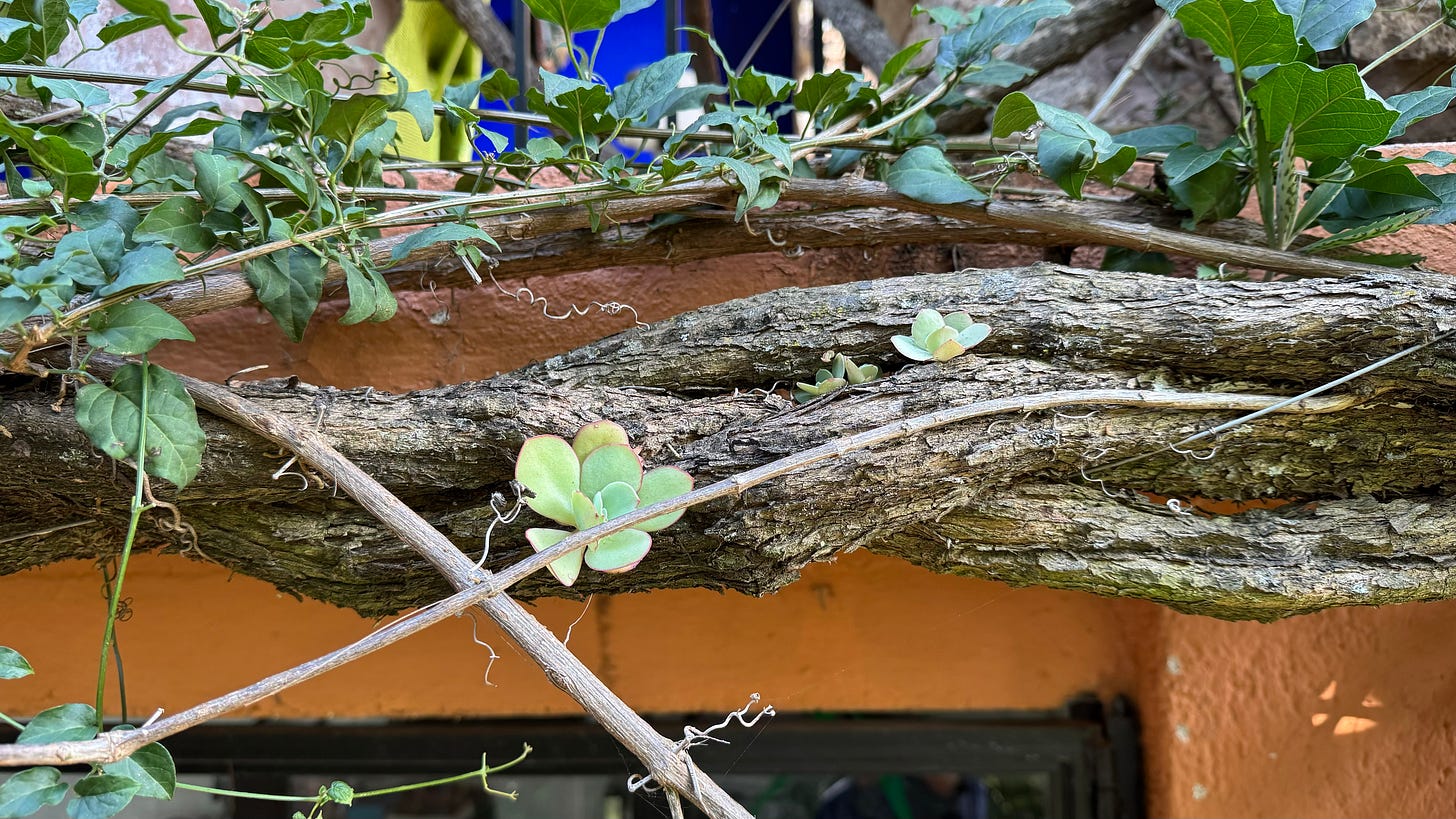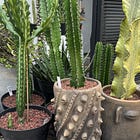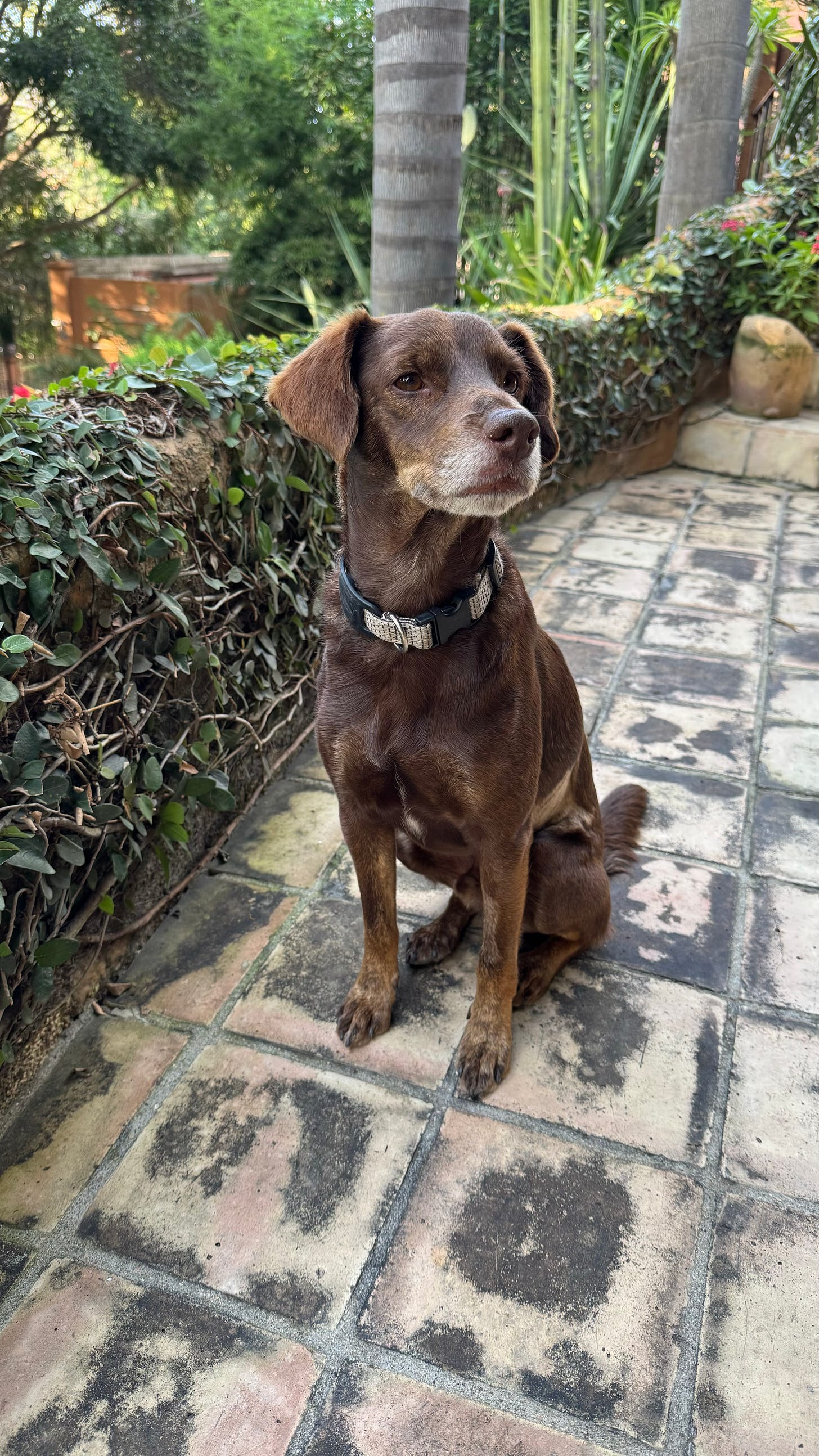No newsletter I’ve written thus far has received a greater response than “Life in Mexico After the 2024 U.S. Election.”
That’s hardly surprising. The re-election of Donald Trump and the announcement of his laughably fascistic cabinet have ratcheted up global anxiety, pushing people into public displays of pessimism far beyond what I’ve ever witnessed, including during the pandemic. As I wrote previously, we immediately began hearing from friends and colleagues, both new and old, who are considering moving to Mexico or another country. One person I know has already scheduled his appointment at the Mexican Consulate so that he and his husband can begin the residency process.
My post, linked to above, resulted in a surge in new subscribers and today’s newsletter is to welcome them and set the tone. Today’s post is also a bonus for all subscribers, and I’ll be publishing three times this week instead of twice (typically Tuesdays are when I publish my weekly post for paid subscribers ).
This is not a hard-news newsletter and I don’t think anyone really wants it to be. In the aftermath of the U.S. election, I’ve stopped reading the news myself, both because legacy publications like The Washington Post have made it clear they intend to modify their coverage to appease the Trump administration, and because reading about the state of the world gives me intense agita. I’ll eventually tap back in, probably by reading news from NPR, the AP Newswire, Reuters, The Guardian, and publications largely from outside of the U.S., but even before this past election, I suffered from acid reflux and the bubbling cauldron of hot gastric acid that sits inside of me doesn’t need to be freshly set aboil with frothy doses of hot despair.
I’m trying not to gaze directly at the state of the world and so are many other people, and I respect that. But, it’s impossible to write about our life and Mexico without also writing about how we’re impacted by what is happening [*gestures*] out there. Even our small mountainside Oaxacan village feels the tremors of the world’s gears slipping out of alignment. I need to write about what is current, and at times difficult, while also delivering a narrative that is fun, enjoyable, interesting, and, hopefully, useful. I also can’t pretend we live in a bubble.
Instead, what I can tell you about is what life is like for us here in Oaxaca, the second-poorest state in Mexico. I can describe our life to you truthfully, with what I hope is empathy and an understanding of the privilege we have. I can tell you about our experiences with people here, and our growing understanding of the very intricate, blended culture we now live amidst. I can describe what it’s like to live a life that is hugely different from what we had in the United States.
What I can also tell you about is how taken care of we feel, which is something we did not experience in the United States. Our families love us, and we have amazing friends in the U.S. We’re incredibly sad to have left. For seven years we lived in a small, 20-unit fifth-floor walk-up New York City apartment building and were supremely fortunate to have lived amidst a group of neighbors who were caring, idiosyncratic, and very involved with each other. It was lovely, and so unlike what we expected from New York. We had a great deal of love in our lives, and there is a great deal we miss.
Here in Oaxaca, though, the level of care and concern we receive from people has a very cultural tinge to it. There is a socialism here, and a collectivism, that nurtures a type of empathy and concern that doesn’t seem to exist in the United States. Every place has selfish jerks, including Oaxaca and our specific town, but there is a fountainhead of human dignity and concern that washes over us on almost a daily basis. I don’t think it’s just because we’re white and (compared to the average Oaxacan) rich. Certainly, Mexico and Oaxaca have people who are oppressed, especially including the state’s many indigenous communities. But people here just seem to care more, and we’ve felt that fairly consistently.
This week’s paid post will be about the incredible level of care we received this past weekend when Andrea gave birth to our son Leo. I think it will highlight just how different things are here and will help to demonstrate that we can and should expect more from our institutions, including that which provides healthcare. Friday’s free post will be about the economics of our childbirth, with a detailed breakdown of costs. Those two posts together should provide a two-sided and detailed case study about how life here is quite different and, in some ways, better.
So, to both new readers and those who have been with me for longer, welcome. I hope you enjoy A Year in Oaxaca, and that it is helpful in some way. And I hope that even if your life circumstances don’t allow you to become expats yourself, you can at least see what it’s like in a country that very few people seem to understand and that you can see how the United States could, and should, do better.







First: Congratulations and sending a warm welcome to Leo.
I'm also in planning stages and will be taking some scouting trips to Mexico in the months ahead.
I've been getting those messages from US friends too. Such a sad reality but I honestly hope they don't abandon their country 🙏🏼
At least we're writing to inform people, right? So they have an idea what to expect when they migrant 🩵